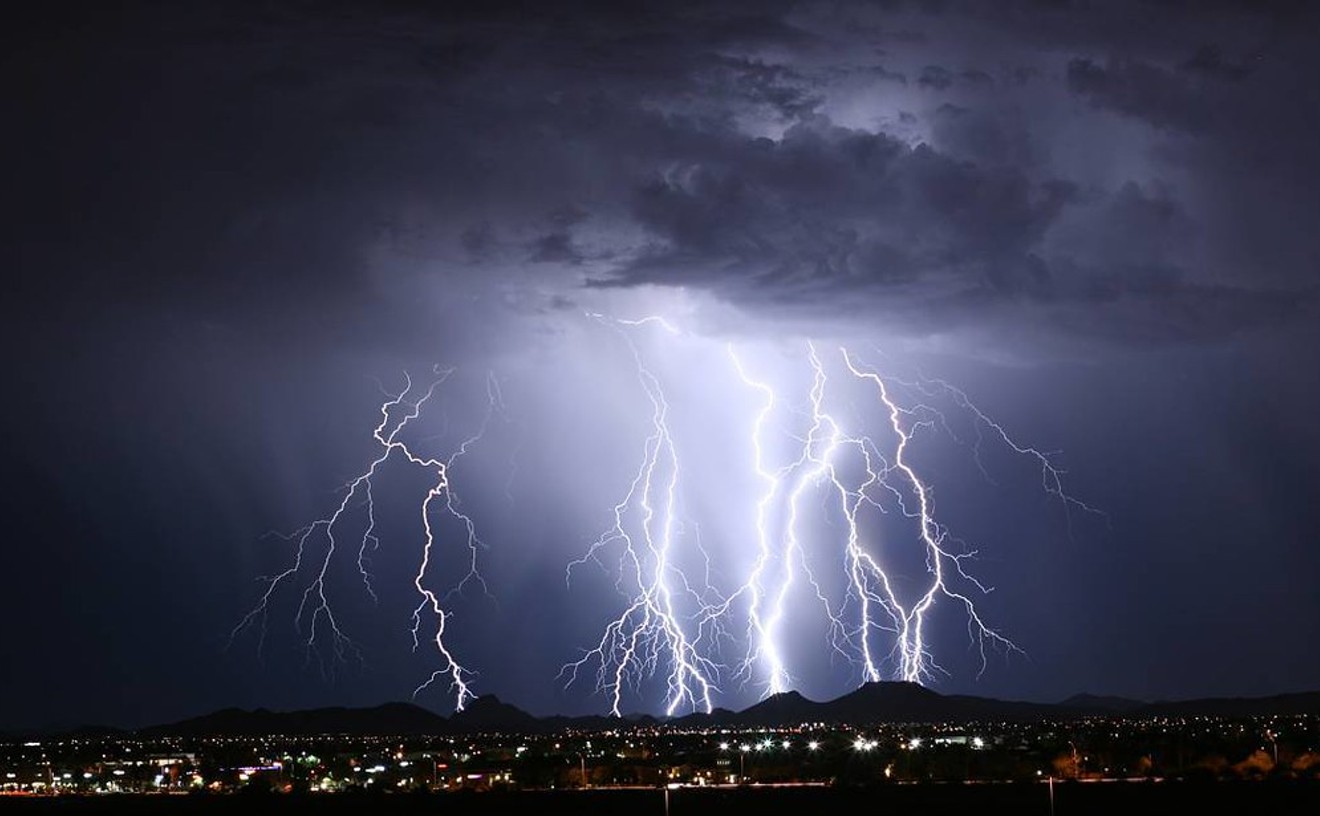In a release, the Justice Department called the move "a return to the rule of law" that allows federal prosecutors to take local control of how they go after drug offenses.
A few hours after the AP broke the news on Thursday morning, the executive director of an Arizona cannabis advocacy organization was in his car, en route to an emergency meeting of sorts. He and several lawyers and marijuana business leaders were frantically poring over how a sudden right turn in federal policy was going to affect them.
"I don’t want to be super-alarmist, but this is very alarming," said Mikel Weisser, the head of Arizona NORML, which advocates for legal marijuana. Weisser also works in a dispensary in Phoenix: "The news hit us like a bomb," he said.
Weisser said that he's been reassured by others that medical marijuana is too big to undo nationally. But in a Republican-dominated state like Arizona, he's worried that the prosecutorial mentality here will be harsh on cannabis users after Sessions' decision.
Rescinding the Obama-era policy, known as the Cole memo, unleashes U.S. attorneys to aggressively enforce federal marijuana law, if they so choose. And the news from the Justice Department could embolden local anti-pot county attorneys such as Bill Montgomery and Sheila Polk.
"Maricopa County, Yavapai County — the prosecuting attorneys in those two counties are among the nation’s most rabid prohibitionists," Weisser said. "So I have grave concern about the health and safety of people in the medical marijuana industry."
Indeed, one person who is probably over the moon at the news is Maricopa County Attorney Bill Montgomery. An anti-pot crusader, Montgomery recently was dealt a blow by the Arizona Supreme Court when the court denied his petition for review of his case against legal medical marijuana in Maricopa County. Voters approved the Arizona Medical Marijuana Act in 2010. But Montgomery argues that the successful ballot measure violates federal law and the county should ignore it.
Montgomery’s office declined to comment on Thursday.
Demetri Downing, founder of the Marijuana Industry Trade Association, said that they don't know exactly what Sessions is going to do, and it would be premature to think that it's the end of medical marijuana in Arizona. However, if the U.S. attorney's office in Arizona were to turn its attention to prosecuting marijuana users, that would be a gigantic mistake, Downing said.We need to stop AG Sessions attempt to roll back the progress we have made to decriminalize marijuana. Time to legalize not criminalize.
— Ruben Gallego (@RubenGallego) January 4, 2018
"There’s so many things that the U.S. attorney’s office should be focusing on other than medical marijuana that it would defy common sense," he said. "And Arizona is a common-sense, libertarian-oriented state."
Downing also emphasized that the Rohrabacher-Blumenauer amendment prohibits the federal government from intervening to crack down on medical marijuana. However, the amendment might not make it into an upcoming spending bill, and Sessions wants to deep-six it.
An attorney with the Arizona Cannabis Bar Association, Gary Smith, said that risk has always existed for Arizona’s medical-marijuana industry, but now that ever-present risk has the potential to significantly increase.
“It’s still 100 percent illegal at the federal level. That’s never changed,” Smith said. “So any dispensary out there doing business is technically in violation of federal law. It’s just by the grace of the Cole memo that people were able to do it.”
Smith spoke with two dispensary owners earlier today who he says are “deeply concerned,” but haven’t reached the point where they’re thinking of closing up shop.
“At least in the near term, Jeff Sessions’ memo probably doesn’t change the landscape of life as we know it today,” Smith said. “But that’s only go for so long as the Rohrabacher-Blumenauer amendment lives on. We could hit a horizon where that goes away, and that’s a freak-out moment for the entire industry.”
Steve White, the CEO of Arizona dispensary company Harvest, Inc. said that we could see renewed “skittishness” related to capital investment in the industry. However, White also suggested that what seems like a setback for marijuana legalization could have the opposite effect.
“I don’t imagine that this will slow the end of prohibition,” White said. “In fact, it’s often helpful. It can create a call to action for those people who believe that prohibition has been a failure.”
So, there are a lot of unknowns. But Sessions' decision has created uncertainty in an industry that employs over 3,000 people here, according to the marijuana trade association.
And the attorney general's drive to prosecute marijuana users goes against a nationwide shift toward decriminalization and backing off a war on drugs that's devastated communities of color.
“It’s not a good sign," Downing explained. "It means that Trump is somehow allowing his subordinates to go after marijuana in some capacity. Limited as it is, it still sends a message that ending prohibition isn’t the right path."Jeff Sessions' decision to reverse the Obama-era policy that discouraged federal prosecutors from bringing charges against marijuana users in states where marijuana is legal furthers entrenches the country in racially biased, fiscally irresponsible, and morally wrong drug policy.
— ACLU (@ACLU) January 4, 2018












